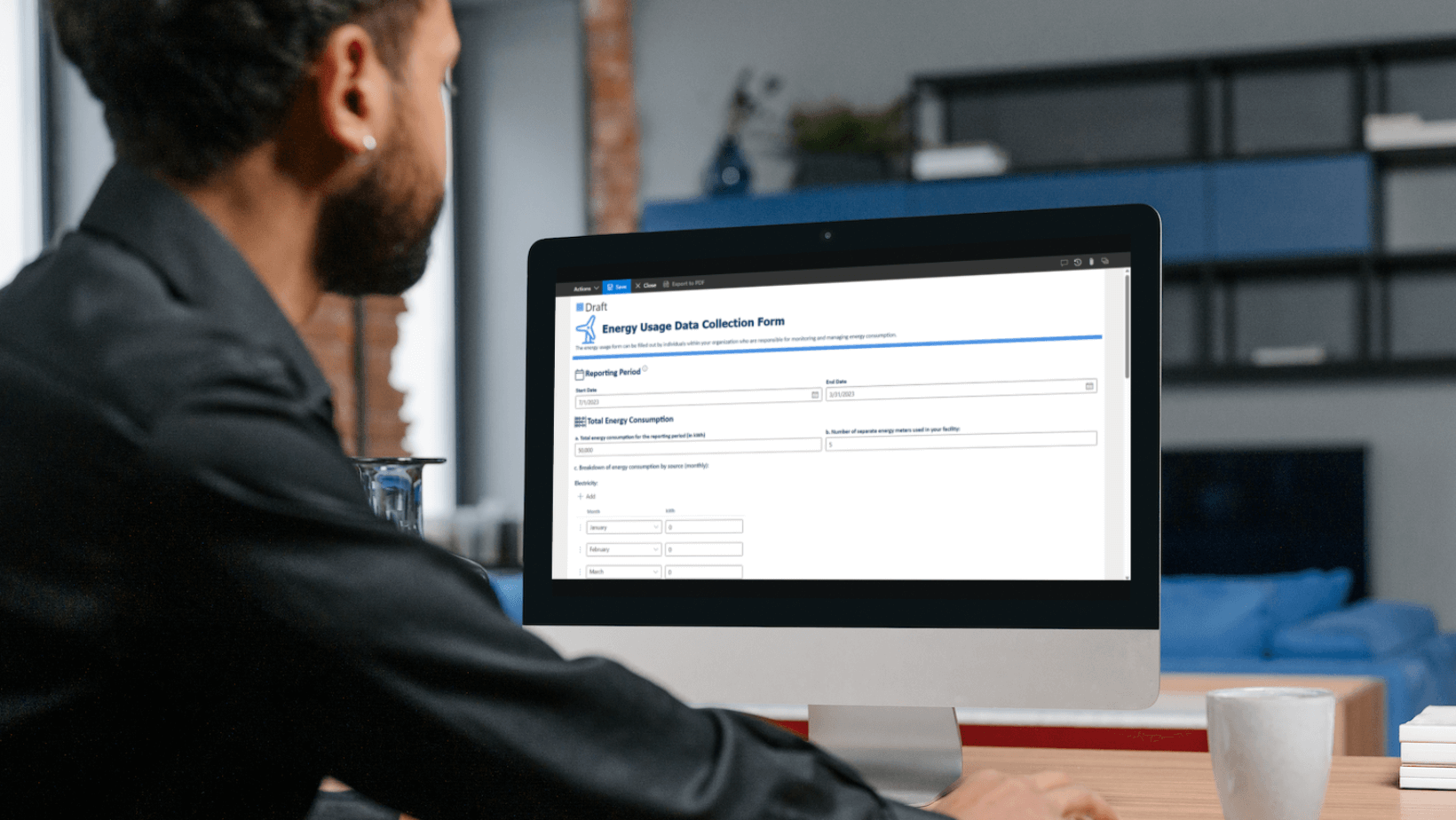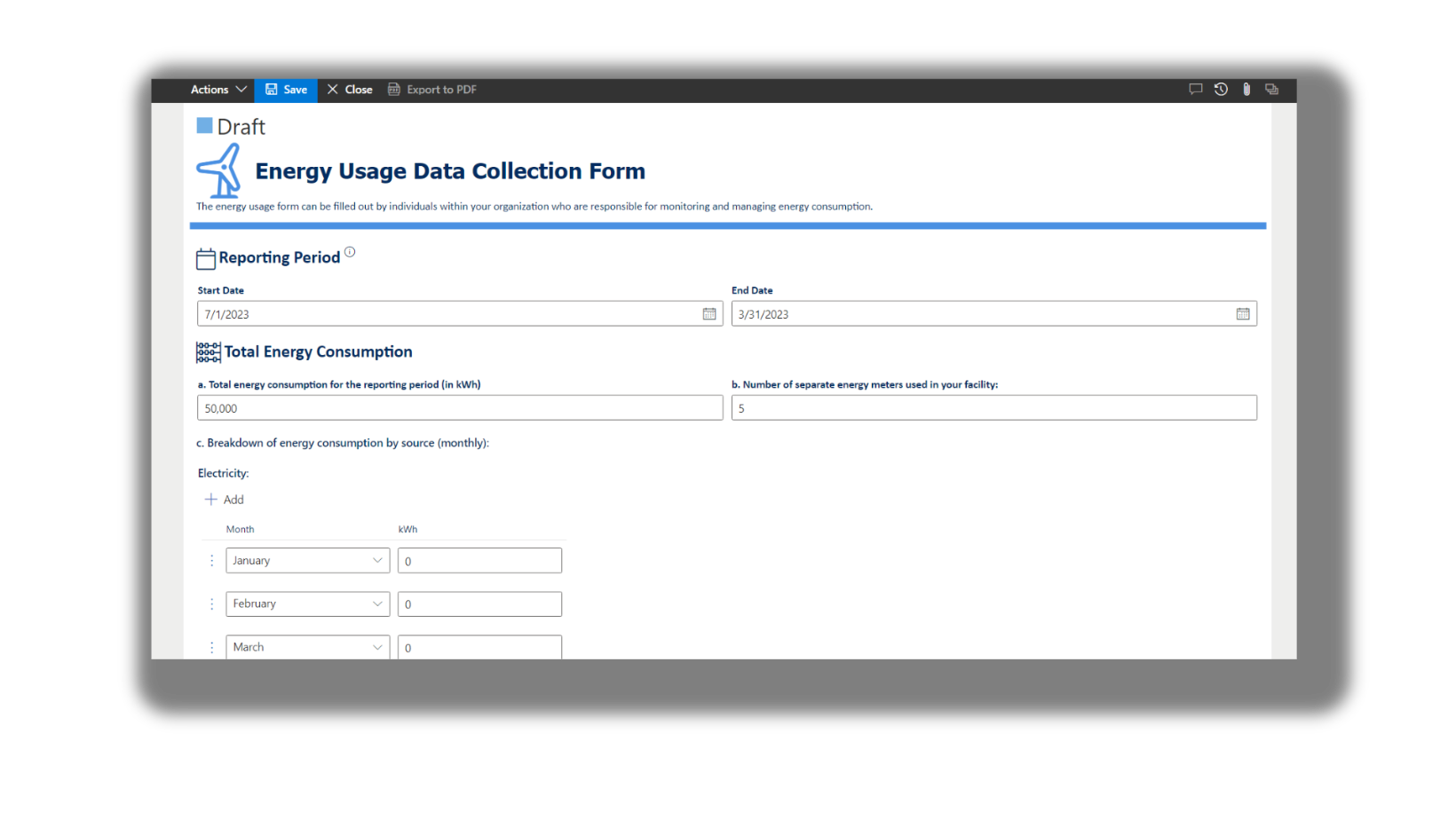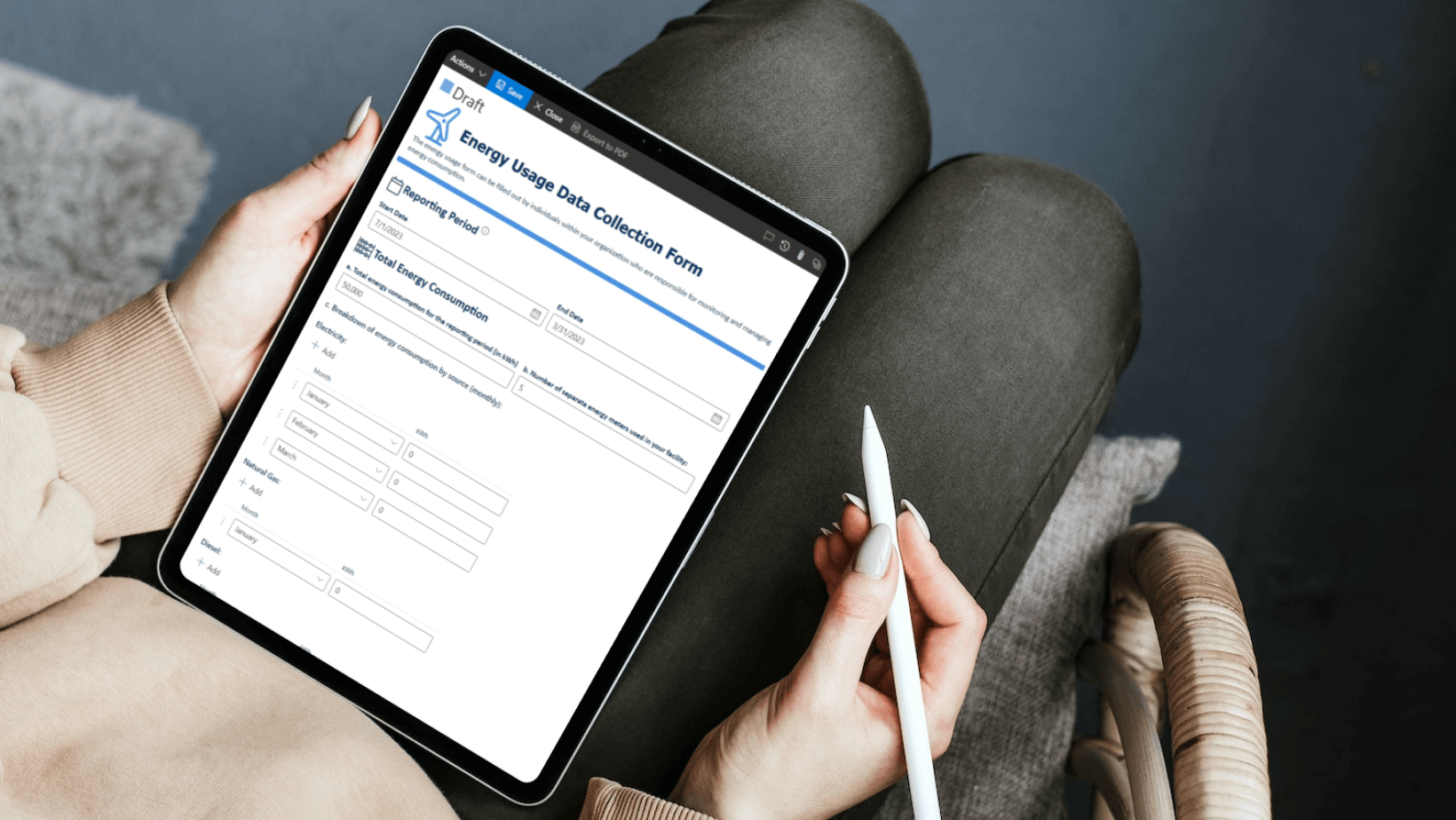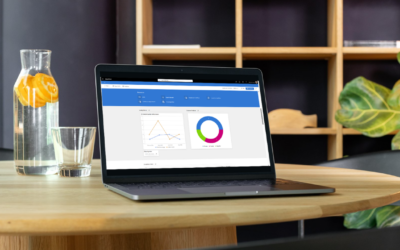In the pursuit of building a sustainable future, businesses have a crucial role to play in reducing their environmental impact. One key aspect of this journey is understanding and managing energy usage effectively. By implementing an energy usage data collection process, businesses can gain valuable insights into their energy consumption patterns, identify opportunities for improvement, and make informed decisions to drive sustainability initiatives.
In this blog post, we will explore what energy usage data collection is, the information it collects, and how businesses can leverage it to drive positive change.
You can also download a free Energy Usage Data Collection Form for use in your business. Once you have downloaded it, you can find information on how to import the app here.

What is Energy Usage Data Collection?
Energy usage data collection involves the systematic gathering of information related to a business’s energy consumption across various operations and facilities. It typically involves tracking and recording energy usage from sources such as electricity, natural gas, fuel, and renewable energy. By collecting this data over a specific reporting period, businesses can gain a comprehensive understanding of their energy footprint and identify areas for optimization.
Information Collected through Energy Usage Data Collection:

- Consumption Metrics:
- Total energy consumption for a given period (e.g., monthly, quarterly, annually).
- Breakdown of energy consumption by source (electricity, natural gas, fuel, renewables).
- Department or unit-wise energy consumption, if applicable.
- Efficiency Measures:
- Implementation of energy conservation practices, initiatives, and energy management systems.
- Details of energy audits, assessments, or peak demand management strategies.
- Renewable Energy Generation:
- On-site renewable energy systems, such as solar panels or wind turbines.
- Contribution of renewable energy to overall energy consumption.
- Challenges and Opportunities:
- Barriers faced in reducing energy consumption.
- Opportunities for further energy reduction, efficiency, and sustainability.

How Businesses Can Leverage Energy Usage Data:
- Performance Analysis and Benchmarking: Energy usage data allows businesses to analyze their consumption patterns, identify trends, and benchmark their energy performance against industry standards or internal targets. This insight enables informed decision-making and prioritization of sustainability efforts.
- Energy Efficiency Improvements: By analyzing energy usage data, businesses can pinpoint areas of high energy consumption and implement targeted efficiency measures. This can include upgrading to energy-efficient equipment, optimizing HVAC systems, or implementing smart lighting solutions, ultimately reducing operational costs and environmental impact.
- Renewable Energy Integration: Energy usage data helps businesses assess the feasibility of integrating renewable energy sources into their operations. By understanding their current energy consumption and the potential for generating renewable energy on-site, businesses can make informed investments in renewable energy infrastructure.
- Carbon Footprint Reduction: Energy consumption is often a significant contributor to carbon emissions. By monitoring and managing energy usage, businesses can track their carbon footprint and identify strategies to reduce emissions. This includes optimizing energy sources, improving energy efficiency, and exploring renewable energy options.
- Sustainability Reporting and Compliance: Energy usage data provides the necessary information for sustainability reporting and compliance with regulatory requirements or industry certifications. Accurate data collection and reporting demonstrate a business’s commitment to sustainability and can enhance reputation and stakeholder trust.

Who should fill out the Energy Usage Data Collection form?
The energy usage form can be filled out by individuals within your organisation who are responsible for monitoring and managing energy consumption. The specific roles or departments that should fill out the form may vary depending on your organisation’s structure and practices. Here are some potential stakeholders who could be involved:
- Energy Manager: If your organisation has an energy manager or sustainability officer, they would typically be responsible for overseeing energy-related initiatives and would likely be the main point of contact for completing the form.
- Facilities or Operations Managers: Those in charge of facilities or operations may have valuable insights into energy consumption within specific buildings, departments, or operational areas. They can provide input on energy usage, conservation practices, and energy-related challenges.
- Finance or Accounting Department: These teams often handle energy billing and expenses, making them important contributors for data related to energy consumption, costs, and invoices.
- Environmental or Sustainability Committee: If your organisation has an environmental or sustainability committee, their members can participate in filling out the form, as they typically play a role in tracking and improving environmental performance, including energy management.
- Department Heads: Depending on the size and structure of your organisation, department heads or managers may be involved in reporting energy consumption and efficiency measures within their respective areas.
It’s important to establish clear communication and assign responsibility for completing the form to the appropriate individuals or teams. Collaboration among these stakeholders can provide a comprehensive and accurate representation of your organisation’s energy usage.
Conclusion:
Energy usage data collection serves as a powerful tool for businesses committed to reducing their environmental impact and embracing sustainable practices. By systematically collecting and analyzing energy consumption data, businesses can identify inefficiencies, implement targeted improvements, integrate renewable energy sources, and reduce their carbon footprint. Through leveraging energy usage data, businesses not only contribute to a greener future but also enhance their operational efficiency and competitiveness. Embrace the power of data and pave the way for a sustainable business ecosystem.







0 Comments